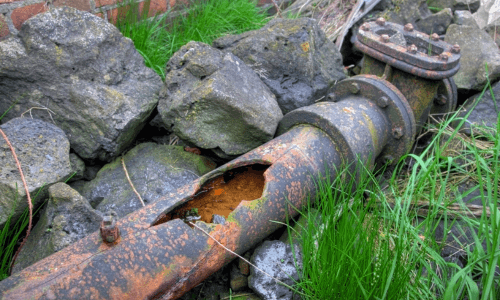
How to repair cast iron pipes
Cast iron pipes, known for their durability and longevity, have been a staple in plumbing systems for decades. However, they can develop issues such as rust, cracks, and leaks over time. Repairing these pipes requires a specific set of skills and knowledge. In this guide, experts from Local Plumber in Florida share comprehensive insights into repairing cast iron pipes, helping you maintain the integrity and functionality of your plumbing system.1. Understanding Cast Iron Pipes
Advantages- Durability: Cast iron pipes can last for 50-100 years.
- Sound Insulation: These pipes reduce the noise of flowing water, offering a quieter plumbing system.
- Fire Resistance: Cast iron is non-combustible, providing an added safety benefit.
Common Issues
- Corrosion: Over time, cast iron can rust, leading to weakened pipes.
- Cracks and Leaks: Physical damage or prolonged corrosion can cause cracks and leaks.
- Clogs: Accumulation of debris and mineral deposits can lead to blockages.
2. Identifying the Problem
Before repairing cast iron pipes, it’s essential to accurately identify the issue. Common signs include:- Water Stains: Indicate potential leaks.
- Wet Spots: On walls, floors, or ceilings.
- Rust: Visible rust on pipes or in water.
- Slow Drains: Indicate clogs or partial blockages.
- Unpleasant Odors: Can be a sign of sewer gas leaks.
3. Tools and Materials Needed
Gathering the right tools and materials is crucial for an effective repair:- Tools:
- Pipe cutter or hacksaw
- Plumber’s wrench
- Screwdriver
- Flashlight
- Bucket
- Wire brush
- Rubber gloves
- Materials:
- Epoxy putty
- Cast iron repair clamp
- PVC replacement pipes (if needed)
- Pipe sealing tape
- Rubber sleeves or couplings
4. Safety Precautions
Safety should always be your priority:- Protective Gear: Wear gloves, goggles, and a mask to protect against rust, dust, and debris.
- Ventilation: Ensure the area is well-ventilated to avoid inhaling harmful fumes.
- Power Tools: Handle power tools with care and follow the manufacturer’s instructions.
5. Step-by-Step Repair Process
A. Minor Leak Repair
1. Locate the Leak:
- Use a flashlight to inspect the pipe and identify the exact location of the leak.
2. Clean the Area:
- Use a wire brush to remove rust and debris from around the leak. Wipe it clean with a cloth.
3. Apply Epoxy Putty:
- Knead the epoxy putty until it is well-mixed.
- Apply the putty directly over the leak, pressing it firmly into the crack or hole.
- Smooth the surface with your fingers or a putty knife.
- Allow the putty to cure according to the manufacturer’s instructions (usually several hours).
B. Major Crack or Break Repair
1. Turn Off the Water Supply:- Locate the main water valve and turn it off to stop the water flow.
2. Cut Out the Damaged Section:
- Use a pipe cutter or hacksaw to cut out the damaged section of the pipe.
- Ensure the cuts are straight and clean.
3. Clean the Pipe Ends:
- Use a wire brush to clean the edges of the remaining pipe sections.
4. Install a Repair Clamp:
- Position the repair clamp over the damaged area.
- Tighten the screws on the clamp to secure it in place, ensuring it fully covers the damaged section.
5. Replace with PVC Pipe (if needed):
- If the damage is extensive, you may need to replace the section with PVC pipe.
- Measure and cut a replacement section of PVC pipe.
- Attach rubber sleeves or couplings to the ends of the PVC pipe.
- Slide the PVC pipe into place, ensuring a snug fit with the existing cast iron pipe.
- Secure the connections with hose clamps.
C. Dealing with Clogs
1. Use a Plunger:- For minor clogs, a plunger can be effective. Place it over the drain and plunge vigorously.
2. Snake the Drain:
- For more stubborn clogs, use a plumber’s snake to reach deeper into the pipe and break up the blockage.
3. Chemical Drain Cleaners:
- As a last resort, use chemical drain cleaners. Follow the instructions carefully and ensure proper ventilation.
6. Preventative Measures
To extend the life of your cast iron pipes and prevent future issues:- Regular Inspections: Conduct periodic inspections to catch problems early.
- Proper Maintenance: Clean your pipes regularly to prevent rust and clogs.
- Avoid Harsh Chemicals: Use gentle, eco-friendly cleaners to avoid corroding the pipes.
- Insulate Pipes: In colder climates, insulate pipes to prevent freezing and cracking.
7. When to Call a Professional
While DIY repairs can be effective for minor issues, some situations require professional intervention:- Extensive Damage: Significant rust, cracks, or multiple leaks.
- Complex Plumbing Systems: Older or intricate plumbing systems may need expert handling.
- Persistent Problems: Recurring issues despite repairs.
8. Choosing the Right Plumber
When hiring a plumber, consider the following:- Experience and Expertise: Look for a plumber with experience in cast iron pipe repairs.
- Licensing and Insurance: Ensure they are licensed and insured for your protection.
- Reputation: Check reviews and ask for references.
- Transparent Pricing: Choose a plumber who provides clear, upfront pricing.
Case Studies
Case Study 1: Minor Leak Repair
Situation: A homeowner noticed a small leak in their basement. Water stains were visible on the wall near the pipe.Solution:
- The homeowner turned off the water supply and used a flashlight to locate the leak.
- After cleaning the area, they applied epoxy putty to seal the leak.
- The putty was allowed to cure, and the water supply was turned back on, resolving the issue.
Case Study 2: Major Crack Repair
Situation: A significant crack developed in a cast iron drain pipe, causing water damage in the kitchen.Solution:
- The water supply was turned off, and the damaged section of the pipe was cut out.
- A repair clamp was used to cover the crack.
- For a more permanent solution, the damaged section was replaced with a PVC pipe, using rubber sleeves and hose clamps to secure the connection.
Conclusion
Repairing cast iron pipes can be challenging, but with the right tools, materials, and knowledge, many issues can be addressed effectively. Whether dealing with minor leaks, major cracks, or persistent clogs, following the steps outlined by the experts at Local Plumber in Florida will help you maintain a functional and reliable plumbing system. Regular maintenance and inspections are key to preventing problems and extending the life of your cast iron pipes. For complex or extensive issues, don’t hesitate to seek professional assistance to ensure the job is done safely and correctly.
Contact us today to learn more about maintaining your water heater and how it can benefit your home and family. Email us at services@local-plumber.com or call us at (833) 247-7667 (POOP).





Leave a comment